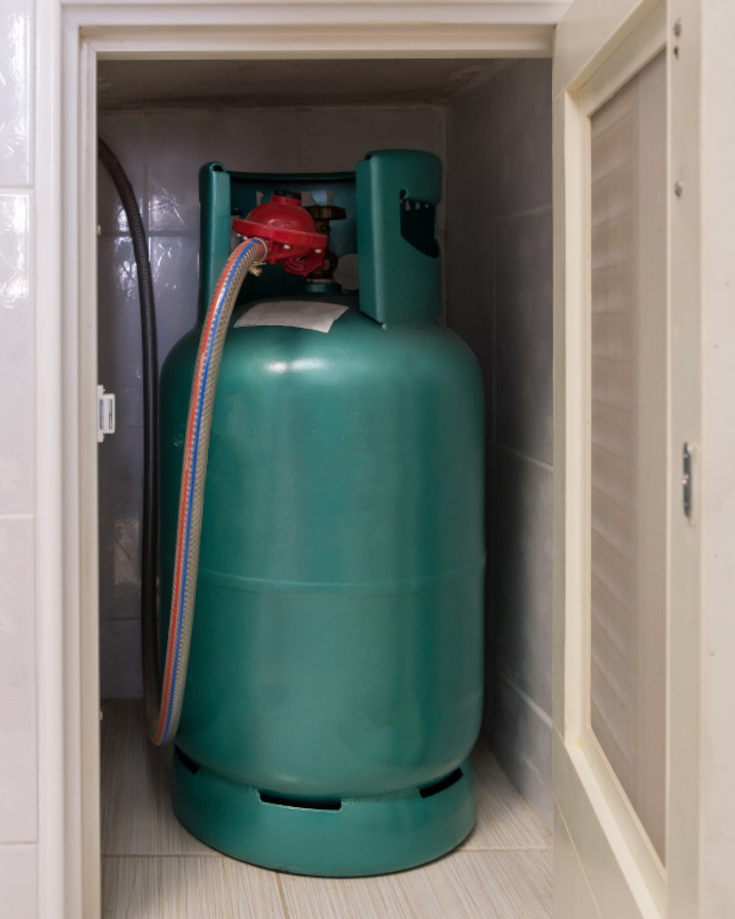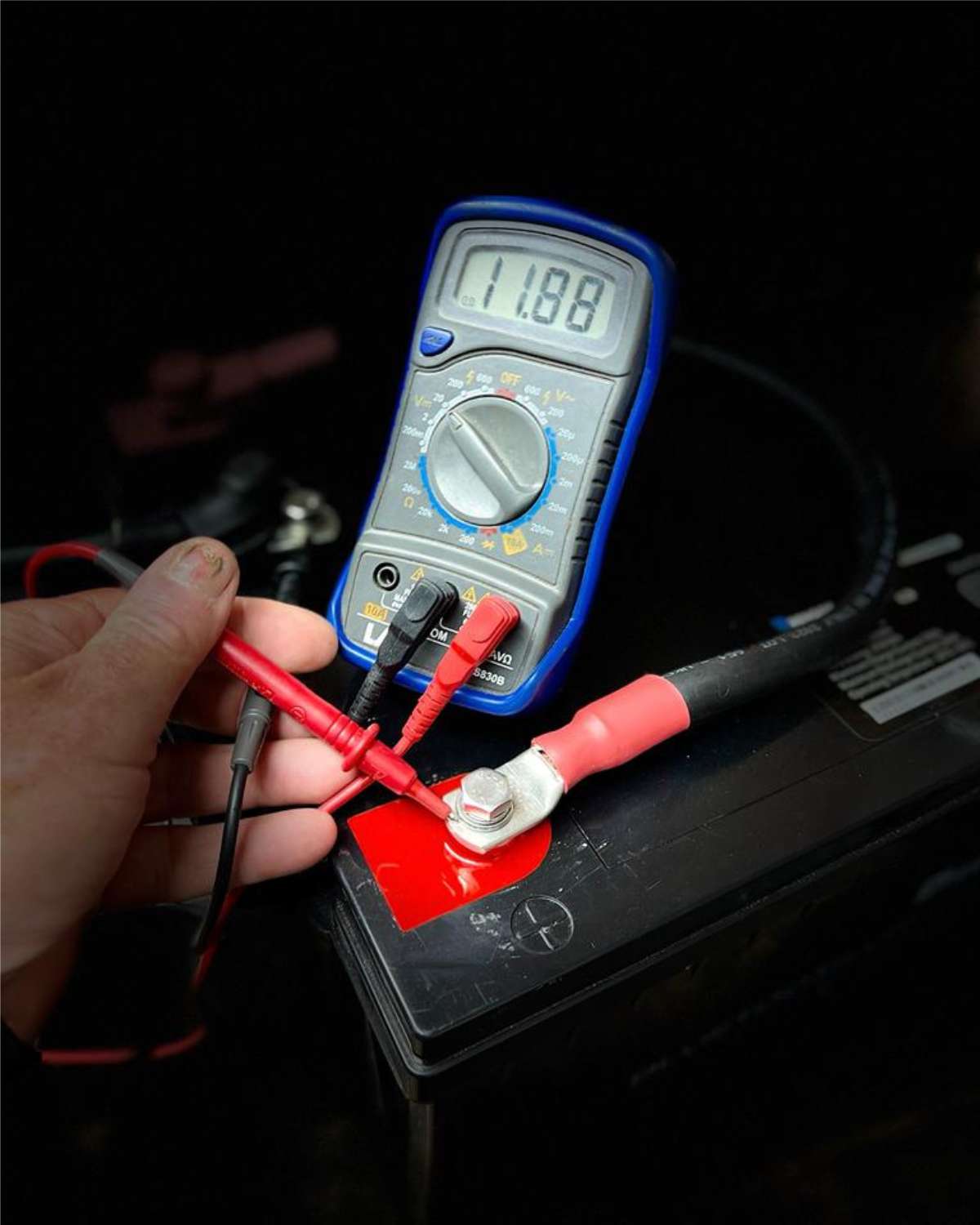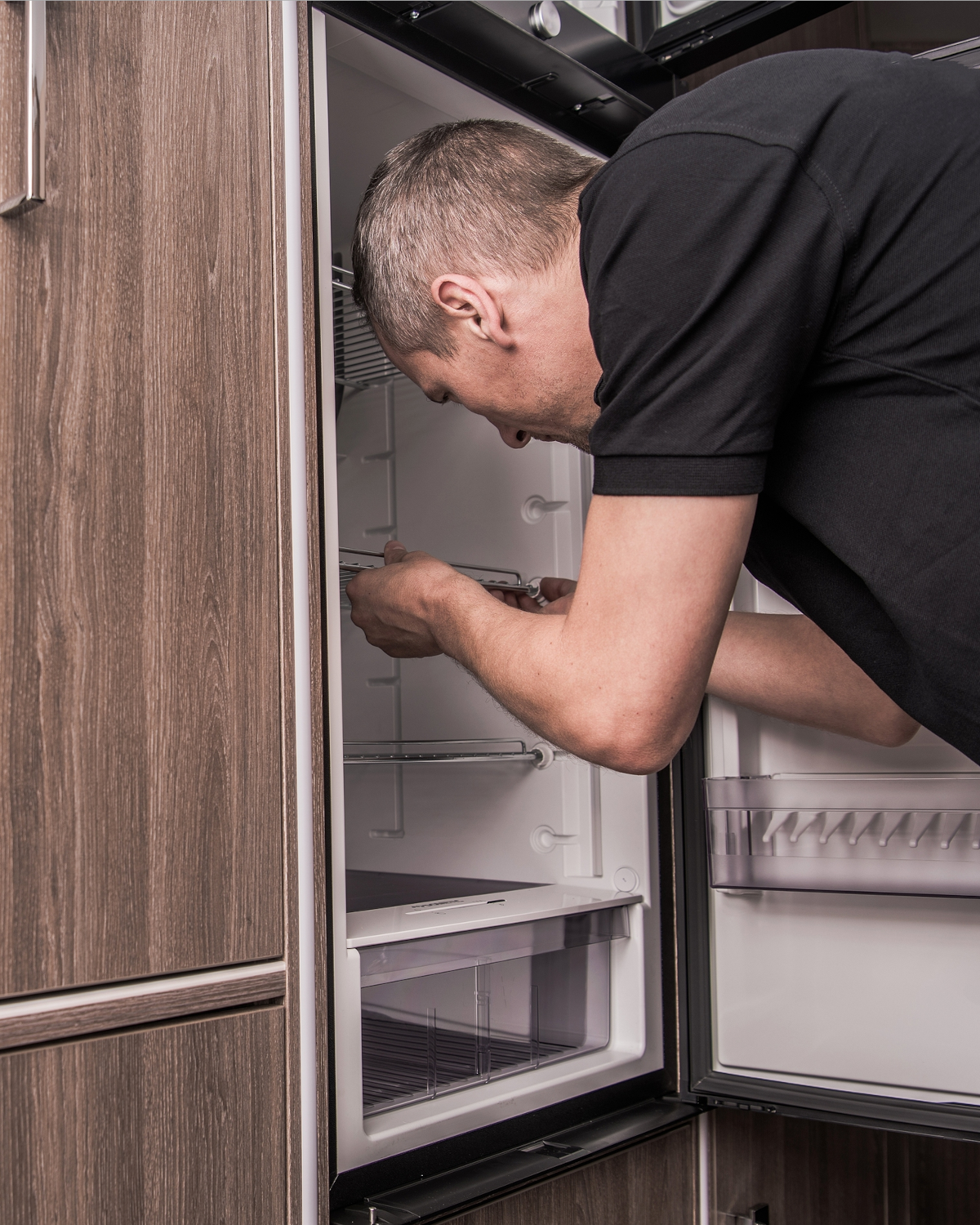How much propane does an RV fridge use? Discover the secret to reducing your RV fridge’s propane consumption with these essential tips and tricks for maximum efficiency.
When preparing for a long trip, especially to more remote areas, the last thing you want to worry about is whether you’ll run out of fuel.
But this is an important question, especially if you depend on a refrigerator to keep your perishables from going bad while traveling.
Thankfully, figuring out how much propane an RV fridge uses is pretty simple — even if you’re not great at math.
All you need to know is how much energy your fridge uses every hour and how the size of your propane tank.
Keep reading to learn more about how propane fridges work and how to figure out RV refrigerators’ propane consumption.
Understanding this vital information will ensure you enjoy a safe, comfortable trip with your must-have food items cold and ready to go.

Understanding How RV Propane Fridges Work
Propane fridges don’t work like residential refrigerators. Residential fridges operate by circulating a cold refrigerant through the unit, cooling the space.
By contrast, RV propane fridges are known as absorption refrigerators because they use condensation to trap heat and move it away.
RV fridges use water, ammonia, and hydrogen to cool. A blend of water and ammonia is heated using propane or electricity until it turns into a vapor (or gas). The water and ammonia are separated as the vapor moves through the system.
The ammonia continues moving to a condenser to cool down, then to the evaporator. The ammonia mixes with hydrogen at this stage, rapidly cooling down and evaporating into a frosty vapor.
This vapor then travels through the coils in your fridge, cooling the interior.
At the end of the process, the ammonia and water meet again, starting the process all over again.
How Much Propane Does An RV Fridge Use?
First, familiarize yourself with some basic figures to determine a fridge’s propane usage.
First, you need to know how much energy your RV fridge uses. This can vary greatly, especially when comparing older and newer units, as newer units are generally more energy-efficient.
For example, we’ll work with an RV fridge that uses 1,400 BTUs per hour — this is standard for a new unit with 8 to 10 cubic feet of space.
There are 91,000 BTUs of energy in a gallon of propane. So assuming you have a 20 lb tank with 4.7 gallons of propane, you have 427,700 BTUs of energy.
Now it’s time to do some math:
Assuming your RV fridge runs 24 hours daily, it uses 33,600 BTUs daily (1,400 BTUs per hour x 24 hours).
If there are 427,700 BTUs in a 20 lb propane tank, the tank can power your fridge for just over 12 days (427,700 BTUs in the tank / 33,600 BTUs daily use).
However, it’s important to note that most RV fridges do not run constantly. Depending on the efficiency of your unit, it may only run for 8 hours per day. So your RV fridge could run up to 38 days on a 20 lb tank.
Do you have a much smaller unit? For example, consider a propane mini-fridge that uses 600 BTUs per hour. This is a good size for storing drinks and only the most essential food items.
If the refrigerator runs constantly, it uses 14,400 BTUs per day. Assuming you have a 20 lb propane tank, the fridge will exhaust all its fuel in about 30 days.
But if your small refrigerator only operates 8 hours daily, it only uses 4,800 BTUs daily. This means you can keep your food cool for nearly 90 days with a 20 lb propane tank.
Factors Affecting Propane Consumption In RV Fridges
Several key factors can affect the propane consumption levels in your RV fridge. These factors include:
- the size of your fridge,
- temperature settings,
- number of times it is opened, and
- how often it requires defrosting.
For example, a larger refrigerator will use more propane to maintain the desired temperature, while a smaller fridge will use less.
Additionally, the temperature settings you choose will also affect propane consumption levels.
Setting your fridge to a lower temperature will use more propane, while setting it at a higher temperature will use less.
Another factor to consider is the number of times you open your fridge.
When you open your fridge, warm air enters, and your fridge must work harder to cool down again, using more propane.
Defrosting your fridge can also impact propane consumption. A fridge that needs to be defrosted often uses more propane than one that rarely defrosts.
It’s also important to note that environmental factors can impact propane consumption levels.
For example, operating your RV fridge at higher altitudes can cause it to use more propane, while cooler outdoor temperatures can cause it to use less.
Remember, reducing your RV fridge’s propane consumption helps you save money on fuel and ensures your propane supply lasts longer, allowing you to enjoy your camping trip without constantly worrying about running out of propane.
Propane Refrigerator Efficiency: Tips and Tricks to Reduce How Much Propane Your RV Fridge Uses
As you can see, your propane refrigerator’s efficiency plays a huge role in propane usage. Thankfully, even if you have an older unit, there are some ways you can increase its performance to reduce its energy usage.

Perform Routine Maintenance
To keep your RV fridge running in tip-top condition, you must stay on top of minor issues before they become big.
Regularly inspect your fridge for signs of damage or deterioration.
Look for broken or loose seals that allow cool air to escape, rust spots that could lead to air or propane leaks, and dust buildup that makes your unit work harder.
Keep Your Fridge Level
Like the most commonly found in RVs, Absorption refrigerators rely on gravity. This means that they require level ground for maximum efficiency.
This can sometimes be difficult to achieve if you park on unlevel ground. Thankfully, there’s an easy solution: Pack a level and shims!
Once you’ve reached your destination, use the level to check the condition of your fridge. First, adjust the fridge’s feet if it’s not parallel to the ground. If it’s still not level, use shims to correct it.
Start The Fridge Before Your Trip
RV fridges don’t cool down as quickly as those you typically find in a house. To ensure that your refrigerator is ready to go when you are, turn it on several hours before your trip.
If you’re leaving in the morning, start the refrigerator the night before.
Pack Colder Items First
You can help your RV fridge maintain lower temperatures by being mindful of how you pack your food items. Whenever possible, pack the coldest items first.
This will decrease the internal temperature so warmer items (like bottled water or condiments) don’t cause a considerable fluctuation.
Pack Smart
Do you tend to stand in front of an open fridge, “cooling down the whole neighborhood!” as someone’s dad probably likes to yell?
This could be the result of you being a picky eater, or it might be because your fridge was packed a little haphazardly.
To limit the time your refrigerator door stays open, pack intuitively. For example, those items you’re saving for the big BBQ in a few days should go in the back, while the iced tea jug you drink several times a day should stay near the front.
Pack everyday needs like ketchup and water on the fridge door or right in the front while keeping salad dressings and other less-frequently used items in the back or on a bottom shelf.
Supplement With A Cooler
Speaking of water, condiments, and other items you’re likely to use more frequently: Remember that whenever you open your fridge, you allow cold air to escape.
This means the refrigerator needs to power on to restore the right temperature.
Rather than put your fridge through the extra stress, consider investing in a standalone cooler filled with ice or an ice maker.
Buying ice is easier and cheaper than buying propane, and it can last a long time, especially if you purchase a large block rather than cubes.
Don’t Block Your Vents
As refrigerators cool down, they expel heat through vents at the unit’s back. So if you set your fridge too far back against a wall, put something behind the fridge, or otherwise block its vent, it won’t be able to get rid of hot air.
This means it will take longer to cool and use more energy to do so.
Make sure your fridge has plenty of space to vent. Also, regularly clean and dust behind the fridge to keep dirt from building up.
Don’t Overfill Your Fridge
For your food items to cool down, there must be adequate space for cool air to circulate within the closed fridge. If you pack your refrigerator densely, air can’t move as easily.
This means your fridge will continue to run to cool the space, but it won’t do a perfect job — this is a waste of energy.
To keep your fridge running efficiently, leave gaps between items. For example, if you only have a few items, spread them throughout the fridge rather than crowd them on a single shelf.
Use Fans To Help With Circulation
Do you know what helps air move around more quickly? Fans. And your RV fridge probably doesn’t have them.
If you want to give your fridge a hand when it comes to cooling, consider investing in small, battery-operated fans.
Even one fan placed at the back of the fridge will help cold air circulate better, which means you’ll enjoy cooler, more consistent temps more quickly.
RV fridges can be incredibly energy efficient, but they can do more if you properly maintain them and follow some simple usage tips.
Now that you know how to figure out how much propane an RV refrigerator uses, you’ll never have to worry about running out while on the road.
Angela Devaney

Angela Devaney, a former IT project management professional, embarked on an adventurous journey of full-time travel, which included touring West Africa in a converted overland truck and converting an ex-military 4×4 Sprinter van into a camper for a five-year South American expedition. She now utilizes her hands-on experience to create practical RV living and van life advice as a full-time digital media producer, reaching over a million users annually through her YouTube channel, blog, and newsletter. Angela also lends her expertise as the editor-in-chief of the Campervan Electrics Handbook.



